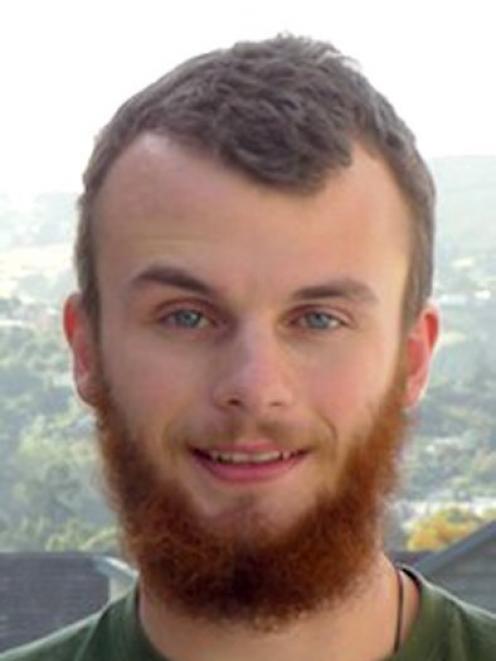Science
Quantum Innovation: Dr. Trainor Secures Fellowship for Crystal Research

Dr. Trainor, a postdoctoral fellow at the University of Otago, has been awarded the prestigious Royal Society Te Apārangi Mana Tūāpapa Future Leader Fellowship valued at $820,000 over the next four years. This funding will support his research into the use of crystals for quantum memory storage, a technology that could potentially revolutionise computing, security, and networking.
Research Focus on Rare-Earth-Doped Crystals
Dr. Trainor’s work centres on specially lab-grown crystals infused with rare earth elements, such as erbium and neodymium. These materials, known as rare-earth-doped magnetically ordered crystals, have shown significant promise for application in optical quantum memory. This technology could enable advanced data storage solutions, crucial for the future of quantum networks.
In his research, Dr. Trainor cools the crystals to temperatures lower than those found in outer space and employs laser pulses to manipulate the elements within them. He has successfully demonstrated the ability to store single particles of light, known as photons, and retrieve them, a key step in developing future quantum communication systems. “I have been using such crystals to store single particles of light — photons — and recall them, which could be used as part of a future quantum network,” he explained.
Dr. Trainor aims to further explore and characterise these crystals, seeking to optimise the conditions under which they operate best. This research is an essential step towards the practical application and commercialisation of quantum technologies, which hold the potential to transform numerous industries.
Additional Fellowships Awarded to Otago Researchers
Dr. Trainor is not the only recipient of the Mana Tūāpapa Future Leader Fellowship. Several other researchers from the University of Otago also received fellowships. Dr. Alice-Roza Eruera will delve into the study of ancient viruses and their evolution, assessing their potential applications in biotechnology and medicine. Dr. Rebecca French will investigate the risk of viruses carried by rats in New Zealand potentially leading to human outbreaks.
Furthermore, Dr. Caitlin Owen is set to develop a more transparent and energy-efficient system for automated machine learning, while Dr. Wahineata Smith will focus on the experiences of Māori and Tongan families raising children with dual heritages. These diverse research projects reflect the broad impact of the fellowship program on advancing scientific knowledge and addressing real-world issues.
Additionally, Prof. Neil Gemmell from the anatomy department at the University of Otago was awarded a Royal Society Mana Tūārangi Distinguished Researcher Fellowship worth $220,000. His research will investigate the role of mitochondrial DNA (mtDNA) in fertility, ageing, and health, utilising advanced genetic tools. “This work will enhance our understanding of the mitochondrial genome’s sex-specific influence on fitness, behaviour, health, and ageing,” he stated.
These fellowships underscore the commitment of New Zealand’s scientific community to advancing research in critical areas, including quantum technology, public health, and societal issues. As Dr. Trainor and his colleagues embark on these important projects, their findings could pave the way for innovative solutions that may benefit society at large.
-

 World3 months ago
World3 months agoTest Your Knowledge: Take the Herald’s Afternoon Quiz Today
-

 Sports3 months ago
Sports3 months agoPM Faces Backlash from Fans During Netball Trophy Ceremony
-

 Lifestyle3 months ago
Lifestyle3 months agoDunedin Designers Win Top Award at Hokonui Fashion Event
-

 Sports3 months ago
Sports3 months agoLiam Lawson Launches New Era for Racing Bulls with Strong Start
-

 Lifestyle3 months ago
Lifestyle3 months agoDisney Fan Reveals Dress Code Tips for Park Visitors
-

 World3 months ago
World3 months agoCoalition Forms to Preserve Māori Wards in Hawke’s Bay
-

 Health3 months ago
Health3 months agoWalking Faster Offers Major Health Benefits for Older Adults
-

 Politics3 months ago
Politics3 months agoScots Rally with Humor and Music to Protest Trump’s Visit
-

 Top Stories3 months ago
Top Stories3 months agoUK and India Finalize Trade Deal to Boost Economic Ties
-

 Entertainment3 months ago
Entertainment3 months agoExperience the Excitement of ‘Chief of War’ in Oʻahu
-

 World3 months ago
World3 months agoHuntly Begins Water Pipe Flushing to Resolve Brown Water Issue
-

 Science3 months ago
Science3 months agoNew Interactive Map Reveals Wairarapa Valley’s Geological Secrets









